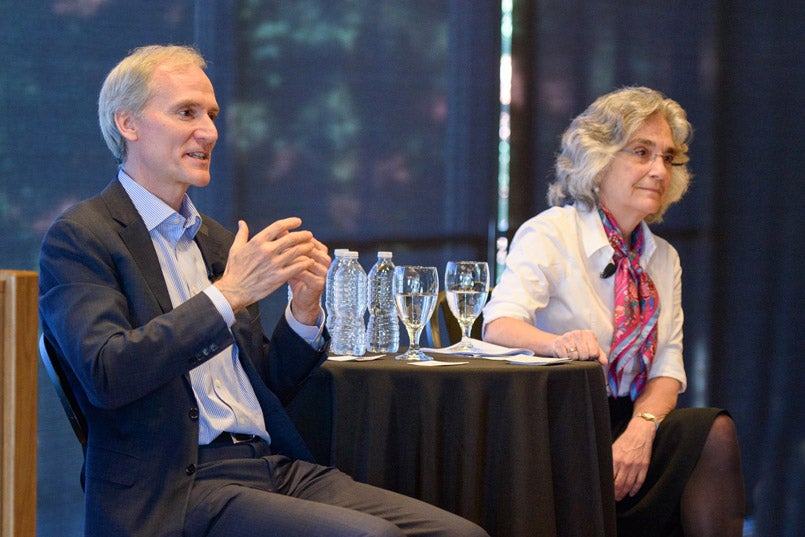September 21, 2017
Summer explorations
Summer is a time to refresh the soul. I spent a small part of my summer doing that by spending some time as a student of the arts.
Some background: I am a physicist. I majored in math and physics in college, and they have been at the core of my career.
But many of the courses I sampled as an undergraduate and in graduate school – in literature, history, music and other fields – have played a huge role in enriching my life. They inform what I read for pleasure, and they have been a continual source of new intellectual interests throughout my life.
Music has been a part of my life since I was a child. I started playing the cello in elementary school.
For nine days this summer, I put aside (most of) my duties as provost and joined about 90 other students enrolled in the chamber music seminar put on by the St. Lawrence String Quartet, based here at Stanford.
These were nine intense days, focused 100 percent on playing music. They were filled with practice, rehearsals with my group, coaching sessions with amazing professional musicians, master classes, performances and impromptu music making with other students late into the night.
It was humbling, to say the least.
It reminded me, first of all, what it’s like to be a struggling student. I was certainly in the bottom quartile of the class! Second, it pushed me well outside of my comfort zone. I find the public coaching and performance parts quite intimidating. But in the process, I made some wonderful new friends and learned so much about the music making.
Chamber music is, at its heart, an intimate form of conversation between the individuals in the group. And it is also a collaborative project in the ultimate performance, where we share our insights with the audience. Pushing oneself into this kind of experience is exactly what we need from time to time.
A few weeks later, I continued as a student of the arts in another way. I have heard from Stanford students at all levels, in all majors, what a fabulous teacher Alex Nemerov is. Alex chairs our Department of Art & Art History and is a scholar of American art.
When I had first visited the Anderson Collection on campus, I happened to thumb through a book that included a short article Alex had written about Jackson Pollock’s painting Lucifer, which I do not understand, and William Faulkner’s novel Intruder in the Dust, which I love. Intrigued, and somewhat on a whim, I had reached out to Alex to learn more.
He graciously agreed to have lunch, which we finally got around to this summer, and it was a wonderful conversation. I asked his advice on how to approach Pollock and other abstract art – again, venturing outside my comfort zone. At the end of a fascinating discussion on many topics, he invited me to sit in on one of his lectures, to which I’m greatly looking forward!
I thought about these experiences as I prepared to speak to our incoming undergraduates and their parents at New Student Orientation this week. Two themes I emphasized were academic exploration and academic breadth.
Undergraduates have a special opportunity to sample broadly across Stanford’s academic offerings, following their curiosity. Doing this offers an opportunity to discover new interests. It provides exposure to the broad foundation of knowledge and development of flexible skills that are important in the contemporary work world.
But sampling broadly also offers an opportunity to tap into subjects that just might provide those surprising, soul-refreshing experiences in one’s future – not only in the slower days of summer, but each day throughout the year.
